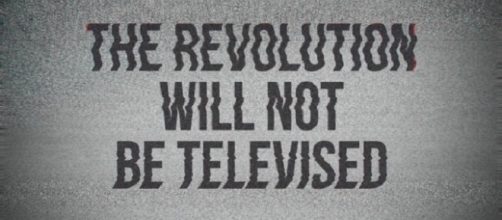Music plays an important role in conveying a message and it is a wonderful way to express an individual’s emotion, with high profile UK hip-hop star, poet, writer and political activist Akala admitting he would be voting for the first time because of Jeremy Corbyn. Throughout history music has played an important role in political activism and it will long continue in that manner, however, have the media censored the latest protest song that has hit the charts.
‘‘Liar Liar GE2017’’ by Captain Ska was released on the 26th May and has subsequently hit #1 on the Apple iTunes UK songs download chart and #10 on Capital FM’s Top 10 singles chart.
However, major stations are refusing to play the song with the BBC stating, “we do not ban songs or artists, however out editorial guidelines require us to remain impartial”.
Media and BBC impartiality questioned
The song itself is a protest song against the austerity measures placed on the country since 2010. It is protesting Theresa May and highlights the lies she is perpetuating to the public and the U-turns she has shown since taking office. But most radio stations are refusing to play the song because of the Ofcom rule that says broadcasters should comply with Section Five (Due Impartiality) and Section Six (Elections and Referendums) of the Broadcasting Code, as well as the prohibition of political advertising contained in section 321 of the Communications Act 2003 and reflected as Section 7 of the BCAP Code.
Broadcasters should rightly stay impartial; however, BBC impartiality has been question multiple times over the years. In 2013, the BBC Trust found that a BBC documentary on the welfare state breached impartiality guidelines, they found that the programme failed to back its views up with statistics after implying the welfare state is in ‘crisis’. In 2015, Radio 4’s Today programme faced multiple complaints after presenter Sarah Montague failed to challenge the Israeli defence minister over Palestine, Ken Loach was among those who complained to the BBC. In January, BBC political editor, Laura Kuenssberg’s November 2015 report on Jeremy Corbyn’s views on shoot-to-kill policy had breached impartiality and accuracy guidelines.
Refusal the play the song ‘liar liar GE2017’ is a form of censorship. The song explicitly expresses the views of those who have bought the song and those who made the song. Refusal to play it, shows that media outlets aren’t as impartial as they should be. Playing music that has gotten into the charts by its own merit is not that media outlet ‘declaring an allegiance’. It is merely playing what the public have asked for. Britain has had a long history of protest music that we are proud of, yet some support this kind of censorship.
A brief history of protest music
Protest music has been around for decades and Tom Robinson’s Glad To Be Gay in 1978, was refused to be played by the BBC on the Top 40 however, has since become a defining anthem of gay liberation in Britain.
This has striking similarities with ‘liar liar GE2017’. Other famous protests songs include The Jam’s Eton Rifles, which was written by Paul Weller after a protest march for jobs in slough encountered the local public school and its army cadets. Pink Floyd’s Another Brick In The Wall, which tackled the issue of individual personalities being oppressed and to conform whilst in school.
The list is too big but a few more also include The Farm with All Together Now, which was a song about the Christmas Day truce during World War I in 1914. U2’s Sunday Bloody Sunday which highlighted when the British Army opened fire on a civil protest against the division of Ireland on Sunday 30th January 1972, an event that has since been dubbed ‘bloody Sunday’.
This event led to an increase in membership to the IRA and fuelled anti-British sentiment within Ireland. Billy Bragg stopped Top of the Pops viewers when he performed Between The Wars, a song that exposed the frequently violent struggle of the UK’s miners. Of course, the most famous but highly misunderstood protest song is John Lennon’s Imagine. The song was written during his most militant period and the song was Lennon’s attempt to ‘sugar-coat’ the harsh personal and political ideas of his first solo album.
British music history has had fine examples of protest songs, and tracks such as ‘liar liar GE2017’ should be played by media outlets. Otherwise it can be seen as censorship and it could be misinterpreted as an act of bias against those ideals and favourable towards those who oppose the content within the song itself.
In other words, refusing to play it could result in more people thinking they are biased than if they played the song. Impartiality isn’t about representing a point of view of neutrality but representing opinions from all sides.

